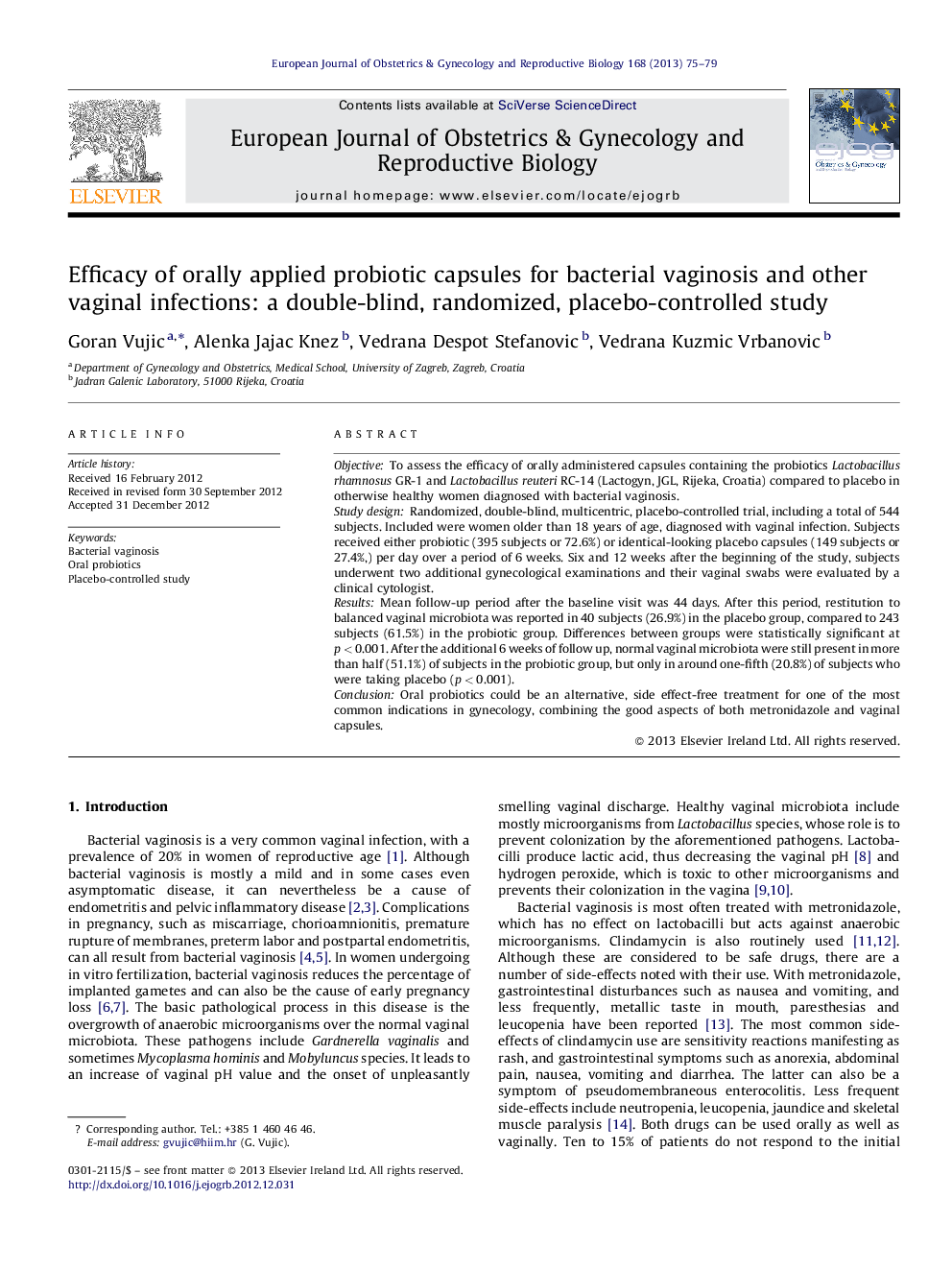| Article ID | Journal | Published Year | Pages | File Type |
|---|---|---|---|---|
| 3920042 | European Journal of Obstetrics & Gynecology and Reproductive Biology | 2013 | 5 Pages |
ObjectiveTo assess the efficacy of orally administered capsules containing the probiotics Lactobacillus rhamnosus GR-1 and Lactobacillus reuteri RC-14 (Lactogyn, JGL, Rijeka, Croatia) compared to placebo in otherwise healthy women diagnosed with bacterial vaginosis.Study designRandomized, double-blind, multicentric, placebo-controlled trial, including a total of 544 subjects. Included were women older than 18 years of age, diagnosed with vaginal infection. Subjects received either probiotic (395 subjects or 72.6%) or identical-looking placebo capsules (149 subjects or 27.4%,) per day over a period of 6 weeks. Six and 12 weeks after the beginning of the study, subjects underwent two additional gynecological examinations and their vaginal swabs were evaluated by a clinical cytologist.ResultsMean follow-up period after the baseline visit was 44 days. After this period, restitution to balanced vaginal microbiota was reported in 40 subjects (26.9%) in the placebo group, compared to 243 subjects (61.5%) in the probiotic group. Differences between groups were statistically significant at p < 0.001. After the additional 6 weeks of follow up, normal vaginal microbiota were still present in more than half (51.1%) of subjects in the probiotic group, but only in around one-fifth (20.8%) of subjects who were taking placebo (p < 0.001).ConclusionOral probiotics could be an alternative, side effect-free treatment for one of the most common indications in gynecology, combining the good aspects of both metronidazole and vaginal capsules.
